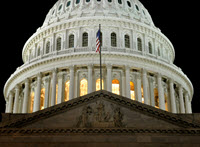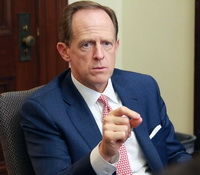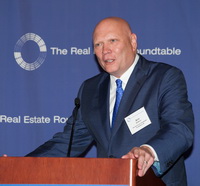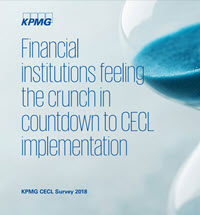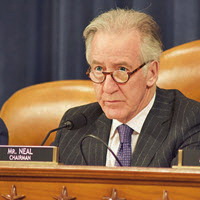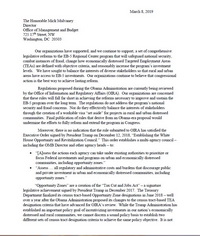Senate Banking Committee Chairman Mike Crapo (R-ID) and President Trump this week launched separate efforts aimed at reforming the multi-trillion-dollar financial market for single-family and multifamily mortgages, including the Government-Sponsored Enterprises (GSEs) Fannie Mae and Freddie Mac.
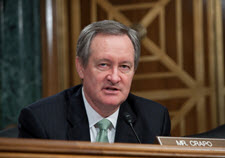 |
|
Senate Banking Committee Chairman Mike Crapo (R-ID) held hearing this week on reforming the multi-trillion-dollar housing finance markets. |
- Two days of hearings before the Senate Banking Committee concluded Wednesday, with twelve witnesses testifying about Chairman Crapo’s recent housing reform outline – a proposal that would return the GSEs to private control. (Roundtable Weekly, Feb. 8)
- Crapo stated during the hearing, “This outline sets out a blueprint for a permanent, sustainable new housing finance system that: protects taxpayers by reducing the systemic, too-big-to-fail risk posed by the current duopoly of mortgage guarantors; preserves existing infrastructure in the housing finance system that works well, while significantly increasing the role of private risk-bearing capital; establishes several new layers of protection between mortgage credit risk and taxpayers; ensures a level playing field for originators of all sizes and types, while also locking in uniform, responsible underwriting standards; and promotes broad accessibility to mortgage credit, including in under-served markets.” (Senate Banking Committee, Day One Testimony and Day Two Testimony)
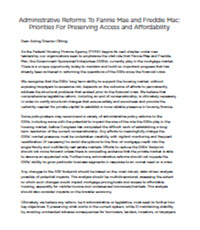
The Real Estate Roundtable and 27 industry organizations on March 1 submitted principles for reforming the (GSEs).
- Following the hearings, President Trump released a presidential memodirecting “the Secretary of the Treasury and the Secretary of Housing and Urban Development to craft administrative and legislative options for housing finance reform.” (Wall Street Journal, March 27)
- President Trump aims to end the GSEs’ conservatorship, “promote competition in the housing finance market … create a system that encourages sustainable homeownership and protects taxpayers against bailouts.” The memo also calls for the preservation of the 30-year fixed-rate mortgage. (White House announcement, March 27)
- The GSE’s received $191 billion in government support during the financial crisis, but since entering conservatorship, they have paid the Treasury $292 billion in dividends, according to research from Keefe, Bruyette & Woods (Reuters, March 27)
The Real Estate Roundtable and 27 industry organizations on March 1 submitted principles for reforming the (GSEs). The coalition’s letter was sent to Acting Federal Housing Finance Agency (FHFA) Director Joseph Otting and Washington policymakers days after the Senate Banking Committee advanced the nomination of Mark Calabria as FHFA Director. (Roundtable Weekly, March 1)
Calabria is awaiting full Senate confirmation, which is expected soon.
